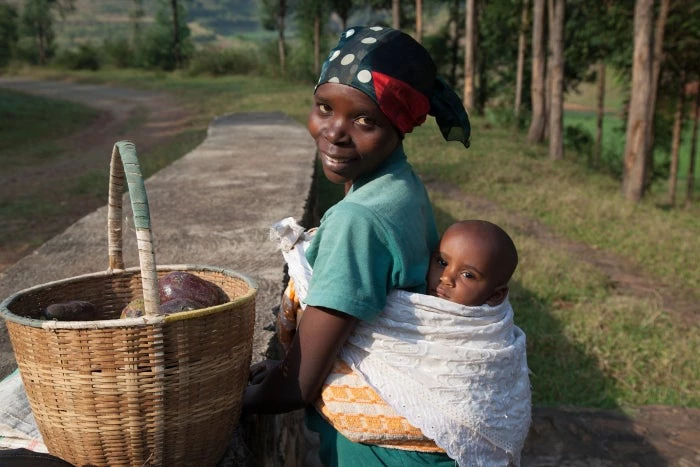Policies and programs that seek to reduce women’s poverty in sub-Saharan Africa typically assume that women are constrained in improving livelihoods. The belief is that they aren’t the key decision-makers in their households around domains such as budgeting and farming. A Gender Assessment team, led by Cornelia Tesliuc, aimed to tackle these types of assumptions with a focus on Zambia, which informed the design of the Girls’ Education and Women’s Empowerment and Livelihoods (GEWEL) Project.
As part of GEWEL and at the request of the Zambian government, I led a research team that conducted one-on-one, conversational interviews and group discussions with 113 women in rural communities. Although the findings are not representative of the general population of rural Zambia, they do question many of the standard assumptions about the challenges that women face in their everyday lives. Talking to these women revealed that:
- Women can and do travel to urban markets to sell their goods. They never reported that external pressures from husbands or others in their communities kept them close to home.
- Many women have a good deal of say over household decisions, including household budgeting, purchasing seeds and fertilizer, buying and selling household items, and children’s education.
- Many women reported working and farming together with their husbands, stating, “couples help each other in life.” Marital problems and divorce are not uncommon in these communities but ultimately, “bad” marriages do not appear to be any more constraining than poverty, and good marriages enhance women’s lives.
- Women reported that they are able to manage caring for children along with their other daily activities. They did not view having children with them while farming or conducting business as burdensome. Some women said that their husbands care for the children while they performed “piecework” – temporary, casual labor for relatively wealthier families. Compared to men, women do, however, experience more time constraints when caring for sick children or adult family members.
- The women in this study did not view housework as overly oppressive. When asked about the amount of time spent on household tasks, such as sweeping and cleaning and cooking, participants answered “the cooking does not take long” and “there isn’t much work” to do for the home.
- All married women agreed that their husbands would not object to their pursuit of becoming “successful businesswomen,” because the “problems in the home would be reduced” and that their husbands “would be grateful.”
Most working-age women long to be small-scale business owners. In many cases the businesses to which they aspire are extensions of their current livelihood activities, such as the selling of tomatoes or dried fish. These women – among the poorest of the poor –are well aware of their social and economic positions, and developing profitable businesses is seen as a chance to improve their lives.
We also found, however, that women often hesitate to take steps toward building their businesses because of the perceived risks involved. Lacking access to credit and insurance to secure themselves against risks, women saw risk everywhere: risk of wasted time and money from travelling to urban markets, risk of livestock death, risk of not being able to repay a loan.
Overall, the Gender Assessment found that exposure to risk is a bigger obstacle to women’s income generation than are typical notions of “disempowerment,” such as lack of time and low bargaining power within the household.
Because of these insights the GEWEL project has designed a comprehensive package of cash, insurance, and business training to support the program participants and will be tested using a rigorous impact evaluation.
**The researchers involved in the GEWEL Project are the Government of Zambia, the Social Protection and Labor Global Practice, the Gender CCSA, and the Gender Innovation Lab.



Join the Conversation